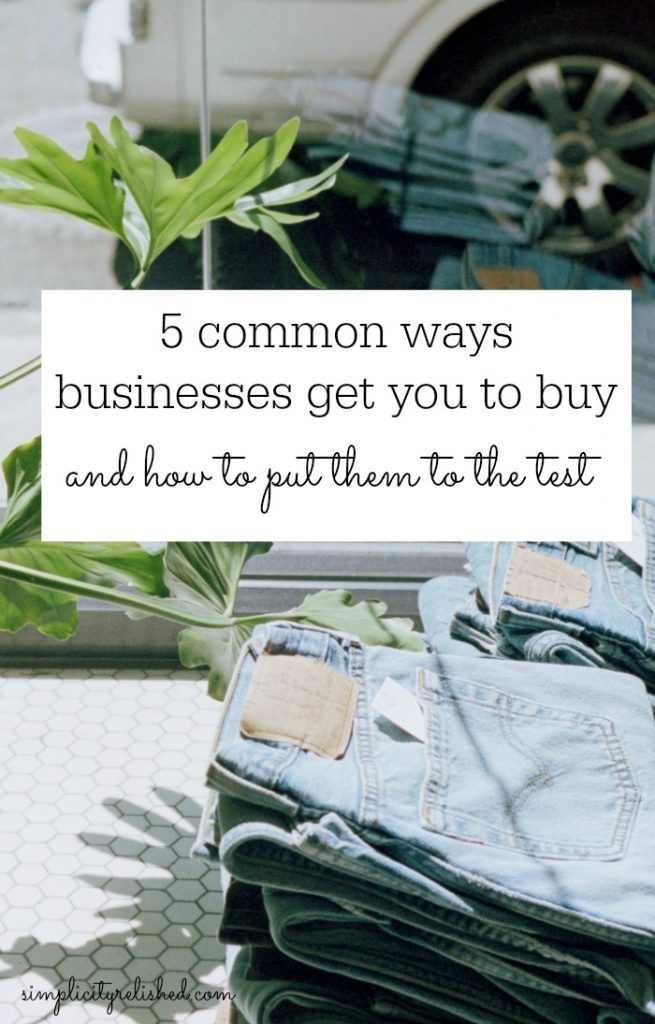Ever since I started working in sales and marketing, I’ve become much more aware of how businesses manage to sell us things. This process is so ingrained into our existence that its nuances nearly become invisible to us. Everyday, we use and consume products. It’s part of what it means to be alive. We eat, we wear clothes, we go places, we use tools.
The minimalist in me is simultaneously wondering how exactly we go from Point A to Point B– namely, how do we make our purchasing decisions? And how do businesses move us down that path?
Every successful business is deeply human.
With the obvious exception of corporate giants that have cornered the market (which aren’t few– I’ll admit), many successful businesses aren’t cold, robot-run establishments. Instead, they heavily rely on resonating with your inner person. Their strategy is deeply dependent on shared human experiences. And when it comes to sales and marketing, no one is more in tune.
Because the truth is, we engage with our world in holistic ways. We process information mentally, emotionally, spiritually, physically, and relationally.
And the inside of a good marketing campaign takes all of these into consideration. The goal is to resonate, compel, and invite.
We can put them to the test.
But just because big, successful brands are constantly thinking about our feelings, desires, and interests, it does not mean we have to settle for what they’re offering. Most business owners will say they’re open to a challenge. Many of them want to raise the standard in their own industry anyway– and we can encourage that.
You see, whether your goal is to purchase as few things as possible, or simply to purchase more intentionally and wisely, you have to understand what triggers you to buy particular things in the first place.
Furthermore, it’s becoming more and more of a marketer’s world. The corner shop used to provide everything our grandparents and their parents needed. Nowadays, our purchases are influenced by forces (and people) all over the world.
So understanding how things are sold to us is a huge step in understanding our own spending habits. Because even if we are not entirely sure why we purchase what we do, the people we purchase from are definitely thinking about it.

5 ways businesses get you to buy
1) They build trust.
Unless a company is the only viable one in its industry, the first step to converting someone into a customer is to build trust. This can manifest in a number of different ways: customer testimonials, an authoritative voice, friendly staff, great return policies, and promises to deliver.
Think about the brands that you return to again and again. Why do you trust them? What makes you believe their product to be better than others?
Test it out: On what grounds is a particular business hoping to gain your trust? Are they a great value? Are they ethical? Put them to the test by making comparisons and asking yourself what leads you to believe them. What makes them more relatable to you than an alternative?
2) They appeal to common human emotions.
You’ve probably heard this one before– and you’re probably thinking of clever commercials that made you feel a certain way. But before you write them off as master manipulators, consider this: the goal of a any ad campaign is to get you into a mental state– possibly one you’ve been in before– that reminds you of a need or problem you have. Why? Because they’re presenting a potential solution to that problem.
Sometimes, it’s not a real solution. Soda won’t actually hydrate you on a hot day, and a car won’t make you invincible. But they want to bring you to that moment anyway, to make you more likely to purchase.
Test it out: If an ad makes a promise and you expect it to deliver, pause for a moment. What actually is the problem that the product hopes to solve? Are you equating the product to the solution you need for a far greater problem?
3) They drive with vision.
In Start with Why, Simon Sinek argues that the most successful companies do just that. They don’t start with a product and then generate a compelling reason to make it; they start with a compelling reason that eventually leads to a logical product.
The thing about a company’s vision is that it actually matters– and it should matter to you, the customer. Unfortunately, so many vision statements are lip service that never gets translated into real practice. You might even work in an office that feels this way.
But on the customer side, it’s important to consider whether the brand’s vision actually compels you to buy. Do you love it? Does it resonate with your own sense of purpose?
Test it out: Next time you’re about to purchase something, consider whether you selected this product because the vision reminds you of your own aspirations. Sometimes, the product can actually help you get there (that’s a successful business). Other times, it’s just lip service.
4) They cater to different levels of engagement.
These days, most sophisticated marketing departments have a customer tracking database. They know everything there is to know about your interaction with their company– from the products you’ve viewed, to the emails you’ve opened, to the ads you’ve clicked on. Yes, it’s a bit creepy.
But they’re not stalking you for no reason. They want to make sure they’re sending you the most appropriate amount of information that will lead you to take a next step with them. You might subscribe to their emails, but only open one a month. You might open all their emails, but never click on anything. Perhaps you’re the customer who has purchased a few sale items over the past year. Or, you’re on their site making purchases every weekend.
Regardless how engaged you are, you matter to them. And they want you to feel comfortable about how often they market to you, and the materials they send.
Test it out: Being intentional about your subscriptions and your web browsing is just as important as being careful with your spending. With each action, you tell companies what kind of customer you are. Don’t want them to come knocking? Don’t give them the impression that you’re interested.
5) They solve real problems.
Are you surprised by this?
Businesses that sell things without providing real solutions are called scams. They’re not popular, and they don’t last forever. People who are in business for good reasons are usually committed to meeting a real, felt need. And those of us who return to the same companies again and again, can attest to their ability to continue to solve our problems.
A problem can be as simple as needing a protective case for your smartphone, and as complex as providing a tailored education for your child’s specific needs. Or replacing broken dock parts on large 18-wheelers (I actually have a friend who does this).
The products that sell– in the long-run– solve real problems. There’s no trick to this; they do their job.
Test it out: You’re likely in the habit of purchasing certain products on a repeated basis. You might have a magazine subscription, or standard grocery list, or a monthly Costco run during which you pick up the same things. Every once in a while, evaluate these purchasing habits. Are these products still solving your problems?
The bottom line: you’re in charge.
If you’re reading this post, you likely have the resources to parse out how and why you’ve become a customer to every business you purchase from. In other words, it’s up to you.
A company can create an amazing product, build a compelling campaign, and win your loyalty fair and square. It can also create an average product, over-promise and under-deliver, and still win your loyalty because you’re not paying attention.
So put them to the test. Ditch the brands and products that don’t pass.
[Tweet “5 common ways businesses get you to buy (and how to put them to the test) via @daisysrosales”]
What other ways have companies convinced you to purchase their products?


Technology give us more information to get success in business. There are more people are now interested to use technology and data science in here. As a result they are now more developed in their job.
In online we got now more research in business. As a result it makes the success way so easy because we find more information and suggestion from there. I think such kind of content is more useful for us to start to buy.
This is great Daisy. I run two small businesses and I make sure they align with my minimalist values by only providing good quality products and content to my customers. SO thanks for this!
I love this! I’ve been trying to shop intentionally lately and buy things because it will truly serve me and not just because there is a sale or because it’s trendy. I’ve just recently discovered your blog and I’m loving it.
Coley
Life Goals Mag
Marketing is definitely a big factor in why we buy things – it’s a good point to stop and evaluate and see if we are buying what we actually need to solve a particular problem. I find social media has been the place I’m influenced to buy products more than traditional advertising – which means I need to tread carefully as not everyone discloses ads!
Hope you are having a lovely start to the week 🙂
Away From The Blue Blog
In my experience, true minimalists encourage you to buy quality products that enhance your life. I have one friend who owns few things, everything fits in his leather messenger bag, but his clothes are quality tested and he owns a MacAir, an iPad and an iPhone for which he writes apps. Most minimalists quickly discover that buying quality means buying less frequently, even those of us who have way more stuff than will fit in a carry-on bag.
I really like this post, because often in minimalism it is ignored that some products are actually very good and, as you said, provide us solutions for our problems.